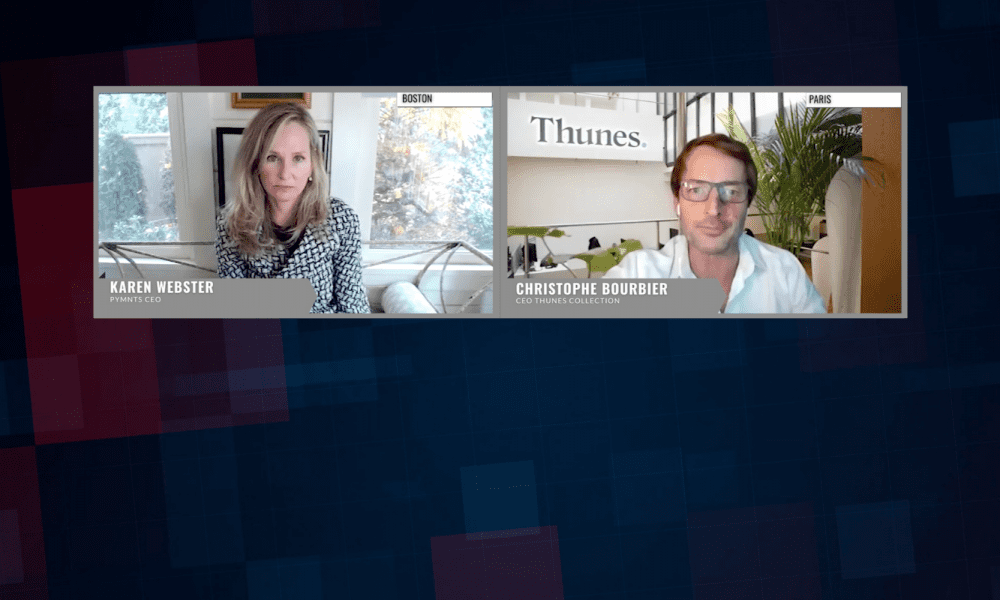Getting paid is a challenge for any business at the best of times, but in the case of cross-border transactions, the complexity often extends several layers deep.
It’s not just that international payments are notoriously slow and expensive. There are much bigger problems to deal with, including the lack of interoperability between the various local payment methods suppliers might want to use and a lack of transparency that makes reconciliation a major headache.
Businesses have struggled with such problems for years. But far more convenient payment methods have started to proliferate in the consumer world, and Thunes Collection CEO Christophe Bourbier said he believes it’s high time businesses had similar solutions at their disposal. With the right tools, making a cross-border payment should be as easy as sending a peer-to-peer (P2P) message on WhatsApp.
“That’s the problem we’re trying to crack,” Bourbier told PYMNTS’ Karen Webster in an interview. “We’re trying to make SWIFT [compliance with Society for Worldwide Interbank Financial Telecommunications standards] and the job of intermediary banks easier, so we can receive a B2C payment from PayPal or something like that, push the money cross-border from country to country — in real time and in a very cost-effective way.”
See also: Cross-Border Complexity Requires New Approach for Global B2B Marketplaces
Bourbier makes it sound simple, but the reality is a bit different. Thunes (formerly called Limonetik) must navigate around a host of complex issues, notably the fact that global payments still rely heavily on older rails such as SWIFT transfers internationally, as well as Single European Payment Area (SEPA) transfers in Europe. These are starting to show their age as they take too long to process, charge high fees at unfavorable foreign exchange (FX) rates, and don’t provide the sender or recipient any visibility into where the payment is — or when it might go through.
For a business that has to conduct hundreds or even thousands of SWIFT or SEPA transactions every month, that could mean only receiving $980 on every $1,000 invoice. Imagine the problems with reconciliation that causes, Bourbier said.
“That reconciliation, if you have a high volume of SWIFT transfers, it becomes a nightmare,” he said.
As if that weren’t enough, cross-border business payment solutions need to be buyer-agnostic, Bourbier said. If a company is buying parts from 50 or 100 different suppliers, it isn’t realistic to expect it to use each supplier’s preferred payment method. So, it means that any international payments platform must be interoperable with multiple kinds of new, open banking payment rails, as well as older formats like SWIFT.
Read also: Simplicity Defines Success for Cross-Border B2B Marketplaces
Thunes is looking to solve these issues, first by creating local entities in each country where it’s hoping to do business. The idea is that having a local presence solves the complexity around local regulations, Bourbier said.
At the same time, Thunes is creating what Bourbier termed “engines” that play nicely with existing payment rails in the different countries it serves. The idea is to be able to net a payment with a specific fee and exchange rate for a given currency in one part of the world, then send that payment to a recipient somewhere else in the world in the local currency affordably and transparently.
“It means building a combination of SWIFT plus bank rails and making those payments easier, as quick and as smooth as a WhatsApp message,” Bourbier said. “When you send a WhatsApp message, you don’t think of the destination country. For money, that’s not the case.”
To illustrate, Bourbier told Webster how one of Thunes’ largest customers, French shipping company CMA CGM, rents out shipping container space to move products all over the world. CMA CGM’s geographically scattered customers all have their preferred payment methods and invariably want to pay in their local currency, so the onus is very much on CMA CGM to facilitate that.
See also: Limonetik, Nuvei Team on EU Vendor Payment Capabilities
If CMA CGM has a Kenyan banana supplier looking to hire some shipping containers, it will likely need to accept payment in Kenyan shillings — definitely not the easiest currency to transact in.
“So, from CMA CGM’s perspective, it wants to receive payment in euros, it wants to ensure the cost isn’t tremendously high, and it wants to know the FX rate given is what will actually be applied,” Bourbier said. “It can be hard to understand the FX because maybe those Kenyan shillings need to be converted to U.S. dollars first and then into euros.”
Thunes eliminates that complexity by streamlining and rationalizing those payments — regardless of how buyers pay. For any company that needs to accept regular cross-border transactions, such efficiency could be invaluable.
“Businesses just want payments to be as simple as a credit card transaction,” Bourbier said. “They want to enable clients to pay the way they want, they want to receive their money instantly, and they want all of this to be done through a single [application programming interface (APL)]. One API, one back office — and they can get paid anywhere in the world, without local constraints.”







